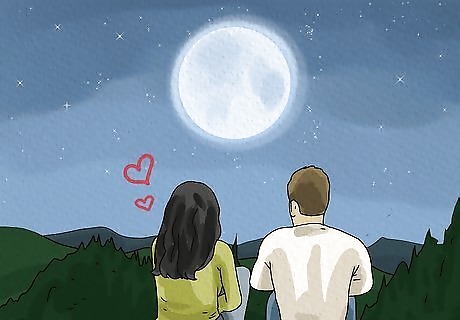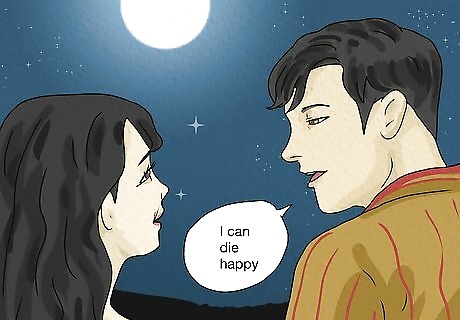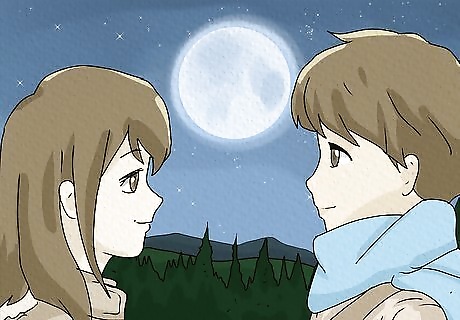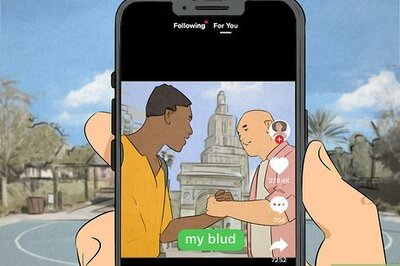
views
- “The moon is beautiful, isn’t it?” could mean “I love you” in Japanese. It can be used to express romantic feelings indirectly, which is the norm in Japanese culture.
- The most popular response is “Shin demo ii wa” (I can die happy), which is a way of saying “I love you too.”
- You can also reply with “Sou desu ne” (It’s true, isn’t it?), which hints that you feel the same way, or “Anata mo utsukushii” (So are you) to be more flirtatious.
“The moon is beautiful, isn’t it?” Meaning

“The moon is beautiful, isn’t it?” can mean “I love you” in Japanese. It’s meant to express love indirectly, since in Japanese culture it’s sometimes considered rude to directly state your feelings or needs. Instead of saying “Sorry, I can’t make it to your party,” for instance, a more appropriate reply would be, “That would be a little inconvenient for me.” Likewise, saying “I love you” might be too direct, so you might say “tsuki ga kirei desu ne” (The moon is beautiful, isn’t it) instead. The phrase is a kind of “code” or secret sign of affection. Not all Japanese people know it, but those who do will know what you’re trying to say.
How to Respond

“Shin demo ii wa” (I can die happy). This could mean “I love you, too,” and it’s the most popular response. You could say this to convey very strong mutual love. While it’s indirect and a bit dramatic, they’ll know what you’re really saying. Remember that “ii” is pronounced “e,” as in “she.” The sound lasts for two syllables, so you should stretch out the sound a bit as you say it: “eeee.”

“Sou desu ne” (It’s true, isn’t it?). This could mean “You’re right” or “I agree,” which could be a subtle hint that you feel the same way. The phrase “Sou desu ne” is a common Japanese expression, so any speaker would be familiar with it. “Sou” is pronounced as “Soh,” as in “Oh.” The “oh” part is stretched out, like “Sooooo.”

“Anata mo utsukushii” (So are you). Say this if you want to be more direct. While a Japanese person may not normally say this, it might be less surprising to hear from a non-Japanese person. The “ii” is a long vowel, pronounced like “sheeee.”

“Hai, demo sore ni fureru koto wa dekimasen” (Yes, but you can’t touch it). Say this to turn someone down indirectly, but clearly. This implication is that they may want you, but they can’t have you. Although this statement sounds blunt in English, the grammar in Japanese is respectful and polite.
Where did this phrase come from?

According to legend, the phrase was coined by a famous author. One day many years ago, the story goes, Japanese writer Natsume Soseki was teaching English when a student translated the phrase “I love you” directly into Japanese. He replied, “Japanese people never say things like that shamelessly. You’d better translate it as tsuki ga kirei desu ne (‘The moon is beautiful, isn’t it?’).” This story is probably false. There’s no record that Soseki ever said this—but it’s become a popular tale, no less.

Nowadays, you’ll hear it in Japanese pop culture. In anime and manga, a character might look at the full moon with the person they love and say “tsuki ga kirei desu ne.” This can convey romantic tension, especially if the speaker isn’t sure if the other person feels the same way. A good example is the romance anime Tsuki ga Kirei (translated as “The Moon is Beautiful), where the title is a direct reference to this saying. It’s also heard in the anime Demon Slayer, based on the manga of the same name.




















Comments
0 comment